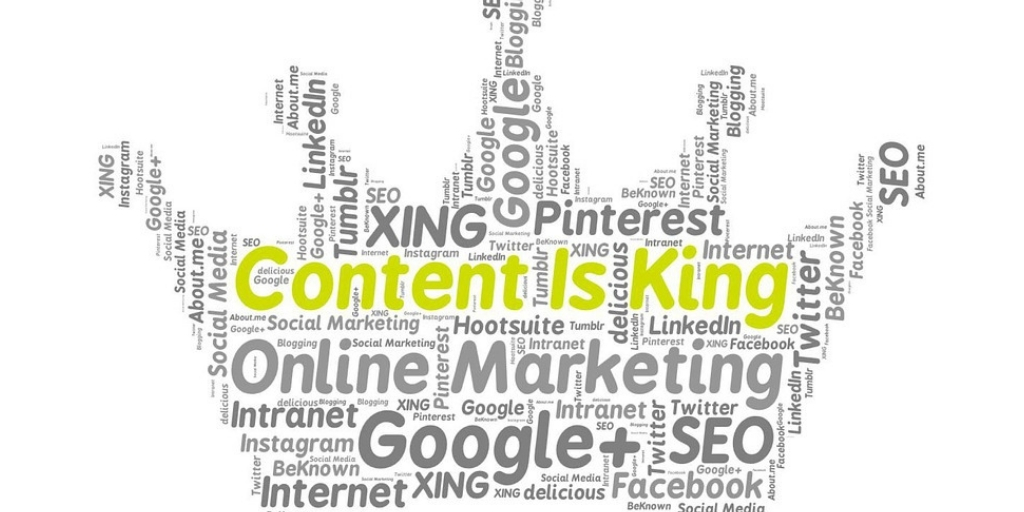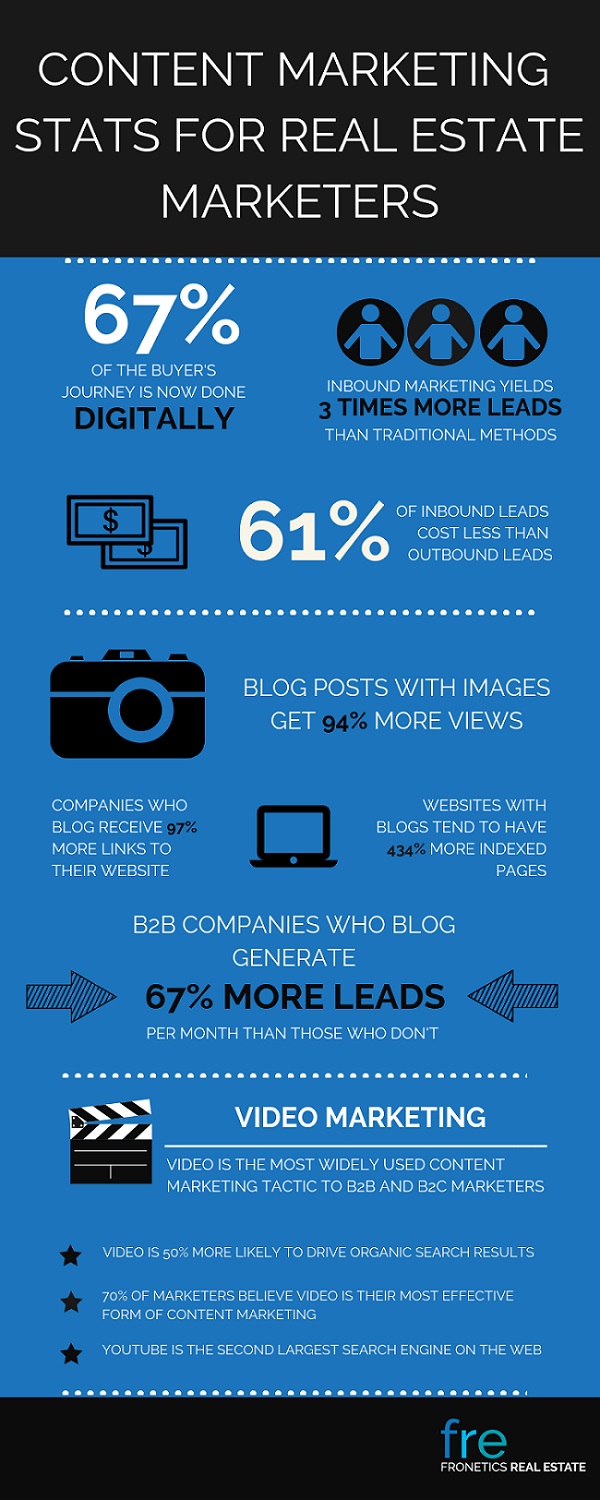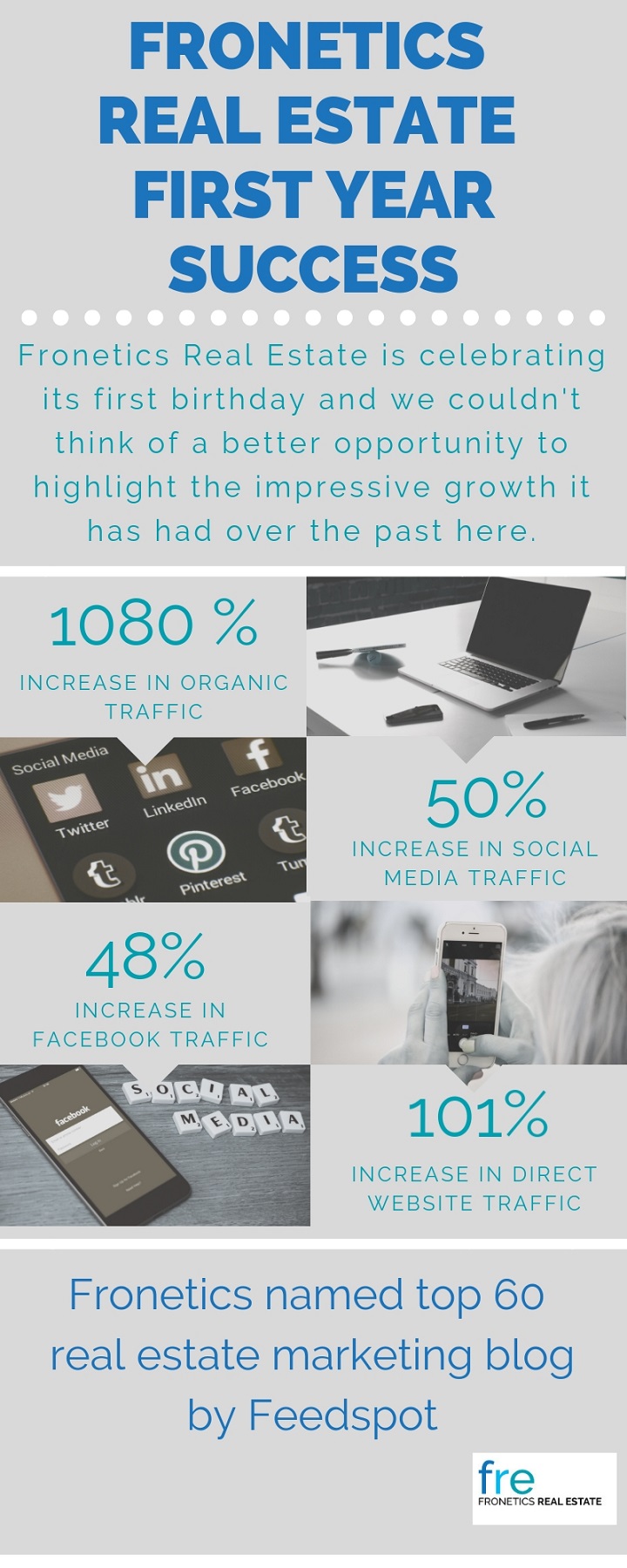Archive for the "Social Media" Category

3 Tips for Marketing to Millennial Real Estate Buyers
Home buyers are getting younger. Is your marketing strategy ready to meet the needs of millennial real estate buyers?
Consider this: more than a third of all home buyers came of age in the digital age. That’s right—millennials, those aged 36 and younger, now make up 34% of home buyers, which is the largest chunk of any generation buying homes right now.
These digital natives have a buying process that’s completely foreign to older generations, which means “traditional” marketing tactics won’t cut it when it comes to appealing to this demographic. Adjusting your strategy to resonate with millennials makes sense not just because it helps you reach this segment of the market, but also because it keeps you better positioned for the future of real estate marketing.
These three tips will help you adjust your strategy to market to millennial real estate buyers.
1) Be ready to guide them through the process
Millennials get a lot of bad press, as a generation that requires constant coddling and hand-holding. But to be fair, these young home-buyers are new to purchasing real estate—the vast majority (66%) of buyers ages 36 and under are first time home-buyers.
Buying a home is a complicated process, and millennials are looking for agents who will take the time to help guide them through the process. What does this mean for your marketing strategy? Placester’s Carolyn Berk suggests that “because guidance is so important to millennials, your marketing should emphasize your dedication to assisting customers every step of the way.”
This means offering resources and strategies rather than simply promoting available properties. For example, an eBook that guides first-time home buyers through the process is a great way to demonstrate your knowledge and commitment to supporting your clients through the buyer’s journey.
2) Help millennial real estate buyers save money
More than previous generations, millennials are saddled with student loan debt and often rely on sources other than just savings to finance their down payments. Simply put, they are looking to save at every opportunity.
Once again, content is your best bet for demonstrating to millennial real estate buyers that you are there to help them save money. Blog posts, testimonials, and case studies should detail your expertise in getting your clients the best possible deal. “Small things, like helping with contract negotiations or mortgage lender references, can go a long way with millennial buyers,” says Berk.
3) Go digital
This one probably seems obvious, but you’d be surprised at how many real estate professionals neglect their digital marketing presence. From social media to your website, marketing online is no longer optional, it’s expected. Millennial real estate buyers are heavily using the internet during their search and buying process, and your marketing strategy needs to be ready to meet them online.
First off, your SEO (search engine optimization) is key—your content needs to be readily available to potential buyers entering relevant search queries. “Aligning the content in your website to keywords that millennials use to search for homes in your region will help you pop up in search listings,” suggests Berk.
Your social media presence is also important. Millennials are checking Facebook, Twitter, Instagram, and Snapchat frequently throughout the day, and they should be finding your content. Take advantage of these visual media to promote your properties with photo and video content.
Marketing to millennial real estate buyers makes sense for your overall marketing strategy and helps keep your brand relevant and ready to adapt to the future.
Related posts:
- 5 Tips for Building a Successful Real Estate Social Media Marketing Program
- Real Estate Firm Grows Sales by 300% through Content Marketing
- Must-Know Social Media Strategies for Real Estate
Archive for the "Social Media" Category

Infographic: Content Marketing Statistics Every Real Estate Marketer Should Know
It’s a given that if you’re a real estate marketer, content marketing should be a big part of your strategy. These are the content marketing statistics you should know about.
Real estate marketers should definitely be adding inbound marketing (content marketing) to your arsenal if you want to reach occupancy at your property. This doesn’t just mean the occasional blog or social media post. We’re talking a full range of content: video, high-value resources, etc.
We’ve pulled some of what we think are the most interesting content marketing statistics out there right now. Take a look at our infographic at the bottom of this post. We hope it will help spark some ideas for you own successful real estate marketing strategy.
Content marketing statistics — the big takeaways
This shouldn’t come as a surprise: the biggest thing you should be taking away from these statistics is that a well-documented, consistent content marketing strategy absolutely needs to be part of your overall business model.
Consider this: 90% of home buyers look online to find their next home, and 70% of them will be getting a sense for who you are through your online content. And by content, we don’t mean ads. we mean the inbound marketing materials like blog posts, videos, case studies, ebooks, and other content that you produce.
The content you create, curate, and share is the single best brand ambassador you have. Too many real estate marketers take a passive approach to their online reputations, rather than taking control of this goldmine of a resource. Content marketing is about using your expertise and what’s special about your brand to become a resource for your audience, and to generate leads by developing meaningful and lasting relationships with your prospects.
We’ve pulled together this infographic of content marketing statistics to give you a full picture of the value of content marketing when it comes to real estate.
Infographic: content marketing statistics for real estate marketers
Data for the infographic came from REASS. (Made with Canva)
Related posts:
- 10 Quick Ways to Grow Brand Awareness
- 4 Types of Content You Need to Sell Real Estate (Besides Listings)
- How to Use Guest Posting as Part of Your Content Strategy
Archive for the "Social Media" Category

Using Messaging Platforms for Real Estate to Deliver Content
The 4 biggest messaging platforms now have more users than the 4 biggest social media platforms. Here’s how marketers are leveraging messaging platforms for real estate to deliver content to target audiences.
Gone are the days when social messaging platforms were just about chatting or making plans with family and friends. You might be surprised to learn that “the combined total monthly active user count of the top 4 messaging apps has grown to 4.1 billion in 2018.”
Just to put that in perspective, that’s well over half of the world’s population and — perhaps even more strikingly — dwarfs the 2.19 billion monthly active users that Facebook reported in the first quarter of 2018.
It’s official: Social messaging platforms have surpassed “traditional” social media when it comes to active users. Not only that, marketers are taking notice, and beginning to think about how to leverage messaging platforms for real estate to deliver content to target audiences.
Popular social messaging apps include, for instance, WhatsApp, Viber, Line, Snapchat, and Facebook Messenger.
Tip: Use conversational content on messaging platforms for real estate
As you might expect, a key element in the successful use of using social messaging platforms is to tell your story conversationally. This means tailoring your content to the specific wants or needs of your target audience, creating a compelling narrative with your content, rather than an overt sales pitch.
This kind of storytelling is fundamental to content marketing.
“Messaging and chatbots represent the next logical extension of the content marketing mission,” writes Chris Frascella of the Content Marketing Institute.
According to Thomas Husson of Forbes, “Messaging apps will introduce a paradigm shift for marketers where interactive and contextual conversations will replace ad broadcasting. New conversational interfaces will drive deeper relationships between consumers and brands.”
You may be thinking that this is all well and good for marketing products, but how does it apply to real estate marketing? The truth is, if you have a content marketing strategy in place, chances are, you have a story to tell, and these are tools to help you do it.
Chatbots
Enter chatbots, the technology to turn your content into conversations. Chances are, you’ve already come face-to-screen with a chatbot and may not have even known it.
These computer programs simulate human conversation using auditory or textual methods. Basically, it’s software that communicates with your target audience inside a messaging app. Chatbots are already changing the way businesses interact with their prospects — and with each other.
If you’re thinking that you’re about to be replaced by a robot, relax. AI technology that could take the place of human interaction won’t happen anytime soon. Chatbots are a tool, and they need to be fed content and trained by human marketing professionals.
Tips for using chatbots
The first step is adapting your content for use in a chatbot conversation.
“You can’t just duplicate existing content in your conversational scripts,” says Frascella.
While the goals for your content are the same, the way it is delivered is different. That requires a shift in how it’s structured.
It’s also important to be mindful of timing. Because chatbots require users to opt into conversations, retaining permission to access your audience in this way depends largely on content and timing. This means delivering engaging, meaningful, and valuable content at regular intervals, but not intrusively.
For more ideas on creating a chatbot, check out this post.
Social messaging platforms for real estate are opening new doors for you to deliver personalized content straight to your target audience. Make the most of this opportunity!
Related posts:
- 10 Social Media Statistics for Real Estate Marketers 2018
- Good Real Estate Marketing Gets Personal
- Social Media Trends for 2018 Real Estate Marketers Need to Know
Archive for the "Social Media" Category

Must-Know Social Media Strategies for Real Estate
Social media fits real estate marketing like a glove—but only if it’s done right. These social media strategies for real estate will help you effectively tap into new sources of leads.
Real estate is a people business. That’s why you should leverage a marketing tool that is also all about people: social media.
If you have not begun developing social media strategies for your real estate business, now is the time to get started.
Consider for a minute that in 2017, 81% of Americans had at least one social media profile. And the numbers are projected to continue skyrocketing: by 2020, 200 million people just in the U.S. are estimated to be on social media.
And it’s not just your high school friends, and distant relatives who are all over Facebook—professional marketers are tapping into social media in a big way. A recent survey of marketing professionals found that 41% plan to up their social media marketing budgets “significantly” in 2018.
Social media strategies for real estate make a lot of sense. But that doesn’t mean that all social media use is good for your brand—the key is to use it the right way. As Bubba Mills, chief executive officer of Corcoran Consulting & Coaching, puts it, “Done right, social media can increase your trips to the bank. Done poorly, it can drive you to the poor house.”
These three strategies will help you ensure that social media takes your real estate business to the bank.
1. Know what’s out there
You’ll often hear people talk about “social media” like it’s a monolithic entity. In fact, every social media platform is unique, and comes with its own set of challenges and advantages. As you think about what content to post, consider what platform will best serve your own social media strategies for real estate.
Facebook and Twitter are ever-popular, and nearly any content can be tweaked to make sense on these platforms. More visual platforms, like Instagram and Pinterest, are ideal for showcasing properties or visual content like a before/after feature. To connect with target businesses or other industry professionals, LinkedIn is likely your best bet.
2. Be a resource: a key social media strategy for real estate
We hardly need to tell you social media is a nexus for the best and worst. When your prospects scroll through their newsfeeds, they wade through a tremendous amount of useless information. Your goal should be to grab their attention with a standout topic, and keep that attention and interest by providing value to your audience.
“When you write your social media posts, think of yourself as a teacher, not a salesperson,” says Mills. “Educate with solid facts and materials readers can use.” Establishing yourself as a trusted resource ensures a lasting and fruitful relationship with your audience.
3. Keep your eye on the prize
As with any marketing endeavor, a crucial first step is a strategy. Social media marketing is no different. A clear, documented social media strategy for real estate, with measurable goals and a mechanism for collecting data on its effectiveness is crucial for success. In the end, it’s all about generating leads—but it’s important not to forget all the steps on the way to this overarching goal.
Used wisely, social media can help build your brand, engage your potential buyers and renters, generate leads, and establish your reputation as a trusted resource.
Related posts:
- 10 Social Media Statistics for Real Estate Marketers 2018
- A Visual Guide to Social Media Posting Frequency for Real Estate
- Social Media Can Be a Strategic Weapon in Real Estate Marketing
Archive for the "Social Media" Category

Happy Birthday Fronetics Real Estate!
One year ago, Fronetics announced the official launch of its sister brand, Fronetics Real Estate, serving residential and commercial real estate clients.
It has been a big first year for us at Fronetics Real Estate (FRE)! We launched a year ago today, offering digital and content marketing services to residential and commercial real estate clients. It seems like a good time to step back and take a look at our progress so far.
By the numbers
We tell our clients all the time about the importance of a data-driven approach to evaluating content marketing success. In the spirit of practicing what we preach, we thought we’d share a few metrics with you, as we evaluate our own strategy at this one-year mark.
We hate to brag, but we’re pretty proud of the fact that since our launch, FRE’s organic traffic has increased by 1802%. While we can always be working to improve our SEO, this drastic growth in organic traffic tells us that our strategies are working, and people are finding us when they search real estate topics.
Additionally, direct traffic to our website has increased 101%. When it comes to social media, our traffic has increased 50%, with 48% of that coming from Facebook. In the same way we help our clients to evaluate key metrics and adjust their content marketing strategy, we’re using this one-year mark to look at our successes and shortcomings, and adjust our strategies accordingly.
FRE Named a Top 60 Real Estate Marketing Blog
Back in March, our blog was included on Feedspot’s Top 60 Real Estate Marketing Blogs & Websites for Real Estate Marketers. Particularly given that we’d only been live for 6 months at the time, we were honored to be included.
Feedspot chose the top real estate marketing blogs from “thousands of top real estate blogs in our index” using search and social metrics. They are ranked on the following criteria:
- Google reputation and Google search ranking
- Influence and popularity on Facebook, Twitter and other social media sites
- Quality and consistency of posts
- Feedspot’s editorial team and expert review
Who are we?
At Fronetics Real Estate, we aim to be a go-to resource for developers, property management companies, and other real estate entities when it comes to all things marketing. Though our blog is relatively new, our team has been creating and driving digital marketing strategies for real estate for many years. We’re proud of our many successes for our clients.
Fronetics Real Estate’s portfolio of digital and content marketing services includes:
- Content marketing: strategy development, content creation, and execution
- Social media: strategy, management, distribution, advertising
- Email marketing: templates, marketing emails, workflows, and newsletters
- Website development: branding, design, maintenance, and content creation
- Paid advertising: pay-per-click and social media advertising
- Sales enablement: reporting and analysis, sales content optimization, automation
Whether you have luxury condominiums, for-rent apartments, a planned community, commercial properties, or mixed-use/retail space, we would love to show you how Fronetics Real Estate can help you reach today’s prospective buyers and tenants.
Related posts:
- Infographic: Statistics that Prove Why Your Real Estate Marketing Needs to Include a Blog
-
This is How Often Real Estate Companies Should Post on Social Media
-
Fronetics Real Estate Blog Named Top 60 Real Estate Marketing Blog
Archive for the "Social Media" Category

5 Real Estate Instagram Accounts You Should be Following
Instagram continues to lag behind other social media platforms when it comes to real estate marketing. But these five accounts have it figured out—follow them for ideas on how to use Instagram to promote your brand and properties.
Instagram remains an emerging platform for real estate professionals, and, given its overall popularity, it’s puzzling that it hasn’t taken over the real estate marketing world. With the majority of real estate searches beginning online, social media is an ideal way to showcase listings.
As the average age for other social media platforms rises, Instagram has a lower average user age, and furthermore, much of its success comes from the fact that it keeps advertising much less invasive than its competitors. That doesn’t mean that Instagram marketing isn’t effective though. It’s time for real estate marketers to take advantage of this platform.
Here are five of the top real estate Instagram accounts that are using their profiles to boost their marketing efforts.
1) realestatelegend
Who doesn’t like a good meme? Realestatelegend has garnered a loyal following by posting memes that give real estate professionals and enthusiasts a laugh. It’s a great reminder that, while we devote a tremendous amount of time and energy to educating and persuading our followers, entertaining them can sometimes be just as effective.
2) realestate_academy
Boasting over 133K followers, realestate_academy is one of the most popular real estate pages on Instagram. It makes use of the visual nature of the platform to highlight beautiful photography, as well as professional development posts and audience engagement.
3) beginninginthemiddle
Everybody likes a good before and after story! Beginninginthemiddle is the output of a husband and wife team, dedicated to low-cost/high-drama renovations. They post incredible transformations—a great reference point if you’re trying to show prospects the potential in a fixer-upper property.
4) galloestates1
Ok, so it might not be for everyone (I don’t necessarily want to see my real estate agent lifting weights), but this Beverly Hills-based realtor has one thing figured out: brand building with a personal touch. His Instagram account is engaging, and a good reminder that real estate is personal. You don’t need to post gym selfies if that’s not your thing, but Instagram is a great place to give your brand a face.
5) the_real_houses_of_ig
With a whopping 1.8 million followers, the Instagram account of The Real Houses founder and editor Kate Rumson is a visual smorgasbord of her brand. Her posts demonstrate her talents in interior design, real estate investment, development and construction, and social media. What’s most striking is the beautifully composed photography and compelling visuals.
Feeling inspired? Get Instagram-ing, and tell us about your efforts.
Related posts:




